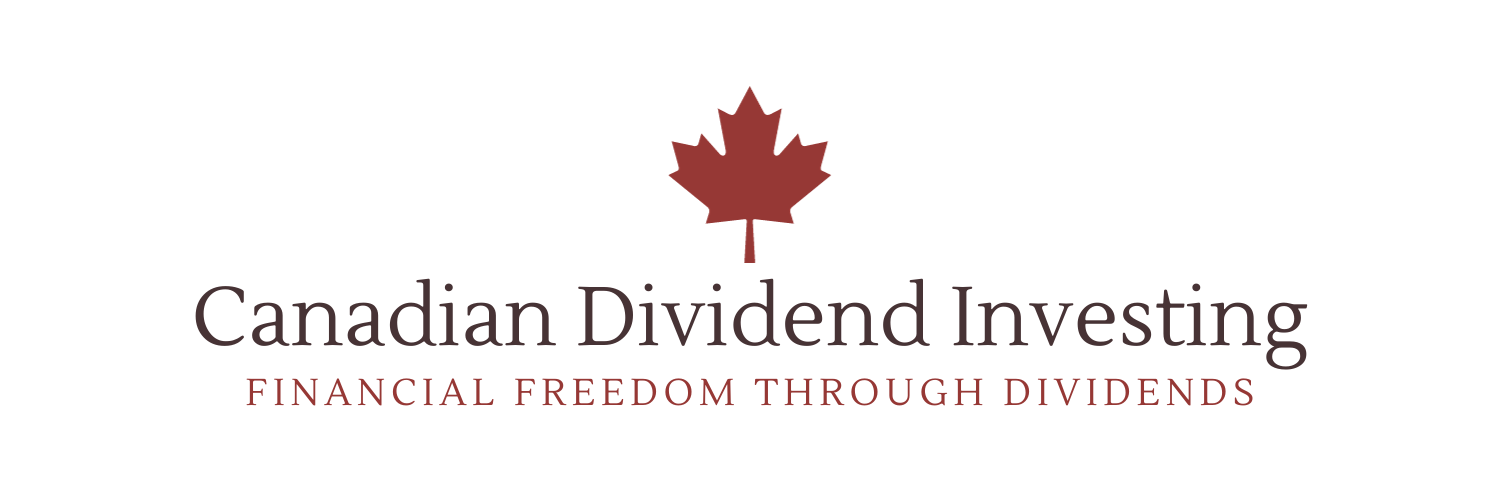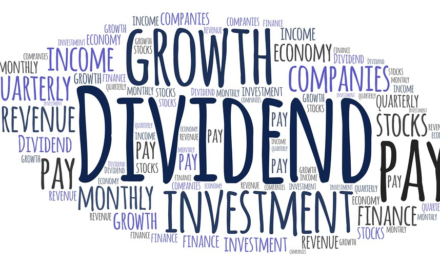Charlie Munger, one of my investing heroes, said:
Every year that passes in which you don’t destroy one of your best-loved ideas is a wasted year.
Charlie munger
(The ironic part of that quote is I once racked my brain for hours to try and figure out an instance where Munger publicly changed his mind on something and I couldn’t figure it out. I don’t think he really changed his mind on much in 50 years.)
But I digress.
Even though Munger seemingly saw more value in the quote than the actual exercise, I firmly believe changing your mind on something is a superpower.
We see it way too often in finance, especially when picking individual stocks. An investor falls in love with a name and will research it to the point where they know the tiniest details about the company, all while dismissing important things that impact the company’s long-term health.
In other words, they get a sense of false precision by knowing all the minute details, when it’s the big picture stuff that really matters.
I’m proud to say I’ve changed my mind on several significant things during my investing career. Some of the more important things I’ve changed my mind about are:
- I went from being dividend agnostic to insisting on being paid my share of a company’s profits
- I used to be a hardcore value investor, now I realize growth (and a narrative) is every bit as important as value
- I borrowed to add an additional oomph to my investments when I was younger. Leverage isn’t a part of my investing plan today
- I went from researching companies deeply to medium dives, a few hours-long process designed to identify a stock’s major drivers without too many details
- My overall philosophy changed from getting rich to staying rich, a goal I hope to achieve by embracing a low-risk investing profile. Which, by the way, can still lead to excellent returns
There are more, but y’all get the picture. And, as my thoughts and goals change, so will my investing philosophy.
But today I want to talk about one of the more important things I’ve changed my mind on, an issue that I would have adamantly argued against a few years ago before more recently changing my mind.
The topic is on paying down your mortgage, and my take is fairly controversial. Let’s dig in.
Math versus peace of mind
For many people, the argument for or against paying down their mortgage goes a little something like this.
If your mortgage rate is less than your expected rate of return investing in stocks, then you should keep your mortgage as cheap leverage.
Thousands of people reading this are in that situation. They either locked into cheap 15 or 30-year loans (if they’re American), or locked into a cheap five-year term (if they’re Canadian).
It can almost feel like winning the lottery to have locked in to such an attractive rate, especially as rates kept climbing higher. Canadian readers who have a 2% mortgage are suddenly facing a renewal at 5% (or higher), a situation that would result in a much higher mortgage payment.
Other Canadians aren’t so lucky. They gambled on rates staying low and signed up for a variable rate mortgage, which came back to bite them when rates went up in 2022 and 2023.
Your author was one of these people. I sold a house in 2020 and used the proceeds to invest in stocks, taking out only the minimum needed to make a down payment on my new place. I foolishly listened to The Bank of Canada’s Governor, Tiff Macklem, who told Canadian borrowers to expect lower rates for a long time.

Whoops
I put the capital to work in cheap, beaten-up stocks (this was summer of 2020, stocks were great bargains), collected my dividends, and enjoyed my cheap leverage. The dividend yield alone on the investment was greater than my mortgage interest, and the payment on the loan was quite reasonable.
Then, 2023 happened. Suddenly my cheap sub-2% loan skyrocketed and I was stuck paying more than 6% interest.
Faced with a decision, I made the simple one. My investments had appreciated nicely, plus they paid me dividends the whole time. The experiment was a success. Although my mortgage payment was pretty much the same, my amortization period went from approximately 20 years to 80 years. I was going nowhere and realized I’d eventually have to start making much larger payments.
So I threw up my hands, sold some stocks, and paid the damn mortgage off.
And let me tell you — it felt unbelievably great. Suddenly our living expenses fell by at least a third. There was no stress about a bi-weekly mortgage payment, either. I was already retired at that point, but I truly felt retired for the first time with no mortgage payment.
Unique math to justify paying off the mortgage
As household CFO, I needed a financial justification to pay off the loan. I didn’t just want to do it because it felt good.
Here’s how I justified it. We owed approximately $240,000 at 6% interest, or about $1,200 per month in interest alone. Add on a few hundred bucks per month for principal repayment and I was looking at about $1,500 per month in carrying costs.
We’ll ignore taxes, insurance, condo fees, etc. because those are expenses whether I have a mortgage or I don’t.
At a 4% withdrawal rate, I’d have to put aside $450,000 in capital to fund that kind of cash flow. Or I could spend $240,000, pay off my mortgage, and free up $1,500 per month in expenses.
In other words, I reverse engineered the process and discovered I’d get way more bang for my buck if I paid off my mortgage versus keeping it.
Now here’s the thing. I’m fully aware I can do the math another way and it would give me a completely different conclusion. If I target a 10% total return on my dividend portfolio, and I’m paying 6% on what essentially amounts to margin debt, then I’m still ahead of the game — at least from that perspective.
Here’s why I didn’t look at it that way.
Firstly, retirement is all about cash flow. Sure, I want my net worth to go up every year, but the primary motivator is making sure I have enough dollars coming in every month.
Secondly, I’m under no illusions my 10% return target is going to be consistent from year-to-year. The stock market delivers lumpy returns; that’s the nature of the beast. Paying off my mortgage offered a guaranteed 6%+ return, compared to a lumpy 10% return. Suddenly, the mortgage payoff was a pretty viable option. Guaranteed money will always have a special place in my heart.
And finally, paying off your mortgage isn’t just about the math. It felt great knowing I’d no longer have to worry about a bi-weekly payment being sucked out of my account. If everything goes to hell and my stock picking skillz are revealed to be worthless, at least I have a paid-off house. No whimsical market can take that away from me.
Equity investors tend to overvalue their exposure to the stock market. I know guys with credit card debt who are regularly investing in stocks. There’s no hope they can beat the guaranteed return of paying off the credit card. I could potentially beat the return of paying off my mortgage, but I’d rather take the easy one-foot bar I can step over than a four-foot bar I’d have to jump over.
Having a paid-off house opens up all sorts of options. I can choose to redistribute that cash flow towards a second property, a portfolio of REITs, or a million other things. I can choose to live there or rent the place out. I can even choose to borrow against it again — although I highly doubt that’ll happen.
Ultimately, it came down to this. Paying off the mortgage was probably 50% motivated by math and 50% motivated by psychology. It was nice to free up cash flow by paying the loan off, but it was about equally as nice knowing those four walls were all mine, dammit.
Would I do it again with a lower rate? I can’t really answer that. All I do know is I’m in no hurry to remortgage the place, and definitely wouldn’t get another mortgage even if rates went back down to the 2% range. At this point in my life I just don’t want the stress.
What I wrote this week
Let’s start things off with my latest for Seeking Alpha, an update on Capital Power and why I think it’s so attractive. You might need a Seeking Alpha premium membership to read it.
Over here on the free site I took a closer look at Canada’s top banks, ranking the top six from least to most favourite — at least for the rest of 2024. A must-read for anyone with these stocks in their portfolio.
Over on the premium newsletter side, I took a closer look at Canadian Utilities, Canada’s dividend king with 50+ consecutive dividend hikes.
I also did my usual weekly roundup over there, where I talked about IA Financial Group, CCL Industries, one of our two model portfolios, and much more. Plus, as always, I rounded up the weekly Canadian dividend increases and put them into one place.
If you’d like to upgrade to a premium membership, click here. Just $150/year, which will pay for itself multiple times over with just one idea. The best investment you’ll make!
What I read this week
Let’s start things off with Bob from Tawcan, who has a list of five stocks he’s looking to buy in 2024. Nice list for those of you looking for a few ideas. There’s even some U.S. exposure in there.
I am not a bike guy (too much risk of ending up as a road pancake, IMO), but I am definitely a fan of people doing what they love in early retirement. Dividend Daddy is a bike guy, and he’s got big plans for both himself and his bike.
I enjoyed this Financial Times interview with Daniel Peris, who just wrote a book about how dividend-focused investing strategies are primed for a comeback. His book, The Ownership Dividend, has shot up my to-read list. I’ll update y’all when I do read it.
You probably already read it, but I thought Warren Buffett’s letter to shareholders was excellent this year. Especially the touching tribute to Charlie Munger.
Mark, from My Own Advisor, has an excellent list of top retirement mistakes. Personally, I thought about most of these before I hung up the proverbial skates. It’s important to realize the reality of retirement, whether you’re leaving early like me or at a more traditional time.
And finally, Koneko Research wrote an excellent piece on the various Dream entities, stocks that have mostly disappointed income investors of late.
That’s all I’ve got. Have a great week, everyone.



